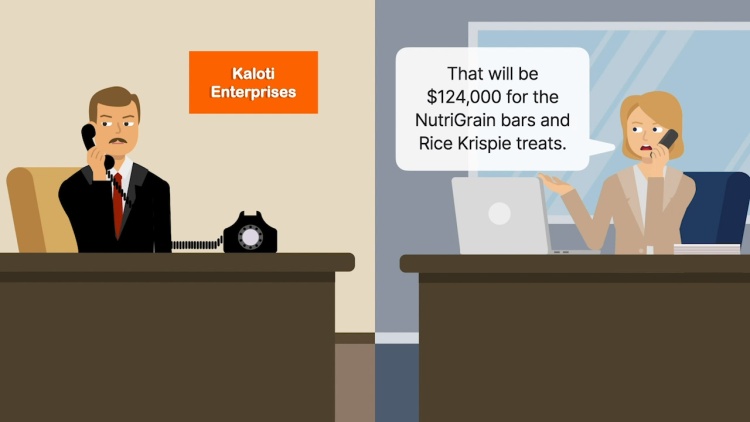Kaloti Enterprises, Inc. v. Kellogg Sales Co.
Wisconsin Supreme Court
699 N.W.2d 205 (2005)

- Written by Josh Lee, JD
Facts
Kaloti Enterprises, Inc. (Kaloti) (plaintiff) was a wholesaler of food products. For several years, Kaloti contracted with Kellogg Sales Company (Kellogg) (defendant) to sell Kellogg’s products. Kaloti always entered into these agreements through Geraci & Associates, Inc. (Geraci) (defendant). For each transaction, Geraci would solicit an order from Kaloti, Kellogg would drop-ship the product to Kaloti, and Kaloti would sell the product to large market stores. Geraci and Kellogg were aware that Kaloti resold the product to the stores. Kellogg changed marketing strategies and began selling products to the stores directly after acquiring Keebler Foods Company (Keebler). Kellogg and Geraci entered into a confidentiality agreement that prohibited Geraci from disclosing this change in strategy. Subsequently, Geraci solicited an order from Kaloti on May 14, 2001, without informing Kaloti of the change in practice. Kaloti purchased the product from Kellogg and attempted to sell the product to the stores. However, the stores refused to purchase the product because they were buying the product directly from Kellogg. Upon learning of this change, Kaloti sought to cancel the order and return the product. Kellogg refused, and Kaloti sued Kellogg and Geraci for fraudulent misrepresentation. The trial court granted Kellogg and Geraci’s motion to dismiss, and Kaloti appealed. The court of appeals certified the question to the Wisconsin Supreme Court of whether Kellogg and Geraci had a duty to disclose the change in Kellogg’s practice to Kaloti.
Rule of Law
Issue
Holding and Reasoning (Roggensack, J.)
What to do next…
Here's why 908,000 law students have relied on our case briefs:
- Written by law professors and practitioners, not other law students. 47,100 briefs, keyed to 997 casebooks. Top-notch customer support.
- The right amount of information, includes the facts, issues, rule of law, holding and reasoning, and any concurrences and dissents.
- Access in your classes, works on your mobile and tablet. Massive library of related video lessons and high quality multiple-choice questions.
- Easy to use, uniform format for every case brief. Written in plain English, not in legalese. Our briefs summarize and simplify; they don’t just repeat the court’s language.





